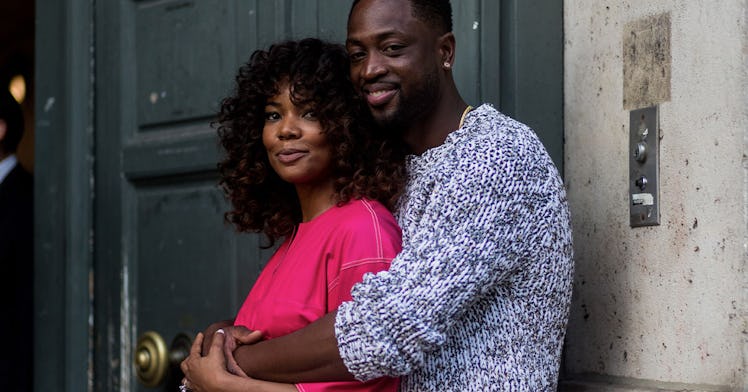Gabrielle Union’s Essay on the “Hard Truths” of Surrogacy Is A Must Read
“This growing bump that everyone thought I wanted to see was now a visual manifestation of my failure."

Gabrielle Union has penned an essay sharing the “hard truth” about her road to motherhood. She wrote candidly about her surrogacy journey, navigating multiple miscarriages, and her fears over becoming a parent. It’s a powerful essay, particularly for others who struggle with fertility or for those who are trying to grow their families.
The actress has spoken before about her journey to parenthood including her diagnosis of adenomyosis, a condition that can profoundly impact the ability to carry a baby to term. In an essay for TIME, Gabrielle shared what it was like for her to be told that her best chance of having a baby of her own would be surrogacy, something she wasn’t able to see as her path to parenthood.
“I was not ready to do that,” she writes. “I wanted the experience of being pregnant. To watch my body expand and shift to accommodate this miracle inside me.”
For her, she also wanted to be publicly pregnant. She explains, “I would shake off the distrust society has for women who, for whatever reason—by choice or by nature—do not have babies. I had paid the cost of that for years, and I wanted something for it.”
For years, she had tried to grow her family. She tried multiple IVF cycles and endured multiple miscarriages, and struggled through the top of the emotional toll it takes. And she was looking at trying one more treatment option, the drug Lupron, which came with some pretty big side effects.
“Dr. Baek told me I would have a 30 percent chance of bringing a baby to term,” Gabrielle writes. “But the side effects of Lupron can be intense: you’re basically throwing your body into early menopause and you can break bones very easily.”
That sounds daunting. But Gabrielle wasn’t ready to give up on the idea of being pregnant. But it was something that her husband, Dwyane Wade, said that changed her mind. “I told him I wanted to try the drug. Dwyane was quiet, then said, ‘You’ve done enough.’”
Gabrielle recalls her husband telling her, “As much as we want this baby, I want you.” Reading that back now, she said she understands. But then, it was different. “I read those words now and hear them again. I didn’t receive this as a concern at the time,” she writes. “It sounded like an acknowledgment of failure. Because at that point I would have sold my soul to get out of the endless cycle of loss.”
Ultimately, Gabrielle and Dwyane chose surrogacy. And that road came with its own challenges, surprises, grief, and emotions. They found a surrogate who became pregnant and near the end of the first trimester, they met up for an ultrasound – and her baby was growing.
“She was showing me her stomach, turning to the side, cupping the weight of my own maternal ineptitude,” Gabrielle writes. “This growing bump that everyone thought I wanted to see was now a visual manifestation of my failure. I smiled, wanting to show I—we—were so happy and grateful. But part of me felt more worthless.”
The emotions of infertility and miscarriage are more understood that it was a decade ago. However, we rarely hear the emotional side of choosing surrogacy. The dueling emotions of being excited to become a mom, and the very real feelings of failure and a sense of missing out. All this which Gabrielle beautifully explains in the essay will do doubt help others sort through their similar feelings that they thought they held alone.
As the ultrasound began and Gabrielle and Dwyane saw their growing baby safely in the surrogate’s womb, both had strong emotions, but for very different reasons. “Dwyane took my hand, and there was so much happiness on his face, I lost it,” she writes. “My cry was a choke stopped up in my throat, tears streaming down.”
“I was embarrassed to be crying so much, but everyone was looking at me with smiles and nods,” Gabrielle shares. “They thought these were tears of gratitude. The awe of witnessing the start of life. I was reliving death. Of course I was grateful, it would be impossible not to be. But what I was grateful for was that this life might be spared. That this heartbeat might continue, beat strong for decades, long after my own stopped. So many had stopped inside me.”
You can read the full essay, which is very worth the read, here.